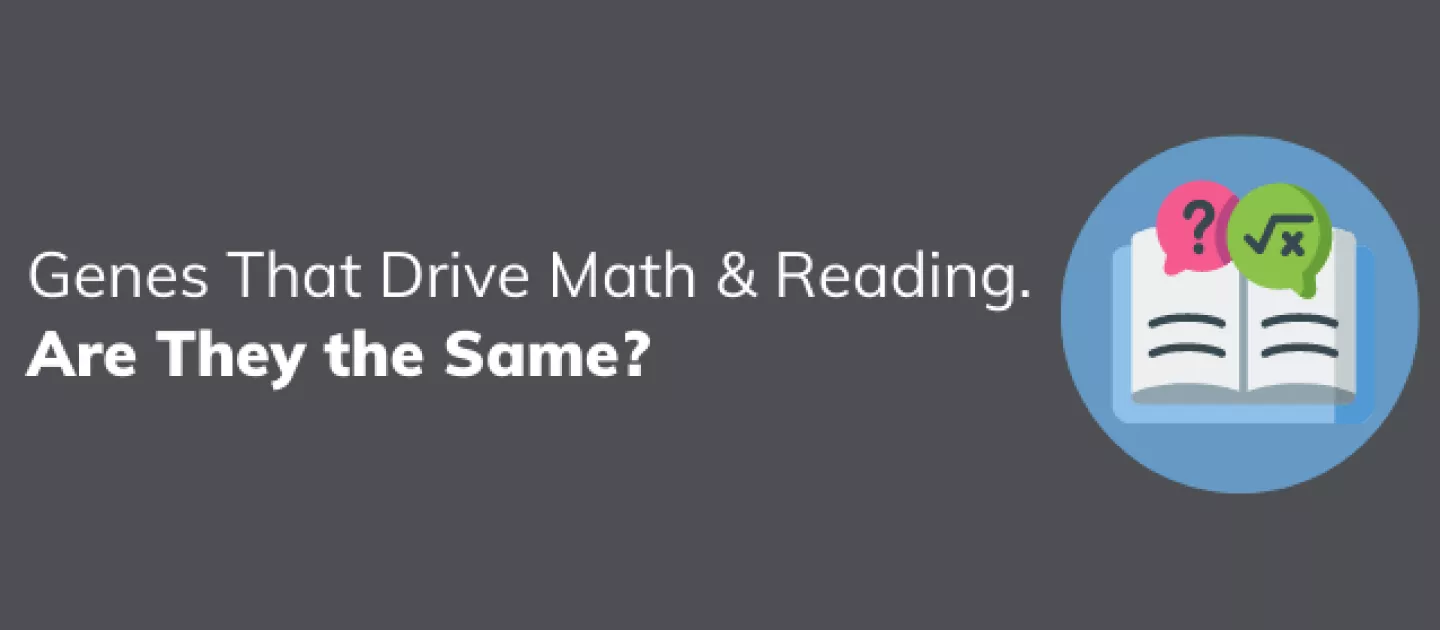You’ve heard the argument before. You know the one we’re talking about, where you’re either great at math and with numbers or a strong reader, but rarely both. Well, it looks like that’s an argument you’re likely to lose. There’s a really interesting study out countering this argument.
The study, published in Nature Communications, suggests many of the genes impacting a child’s math skills and abilities are the same ones that impact a child’s reading skills. Surprised to hear this news? Let’s see what the researchers had to say.
Math + Reading = Same Genetic Differences
According to the study, some of the same genes that drive a child’s natural reading ability are the same ones that contribute to a child’s mathematical skills. But how exactly does this work and how serious is the overlap?
The study estimates about half of the genes that influence how well a child can read also play a role in their mathematics abilities. Researchers came to this conclusion by comparing math and reading test results against the DNA for about 2,800 children (all 12 years old) in the United Kingdom. The children were tested for things like fluency, comprehension and mathematics.
When the test results were combined with DNA data, researchers found something extraordinary—although subtle. There was a substantial overlap in the genetic variants in the DNA associated with mathematics and reading abilities. However, there’s a lot more we need to learn about these genes. The reality is very little is known about which specific genes are involved and how they interact. Instead, it suggests that the genetic influence on these types of traits are caused by many genes. So, if you’re wondering how you’re so lucky to get these genes—and which ones they are—science doesn’t really have the answer for you just yet.
Nature vs Nurture—Which Wins Out?
But how far does this overlap go? Is a child’s acumen in math and reading all based on their genes? Are some children destined to excel in these areas simply because of their genes? Of course not, researchers say. Despite genes and cognitive traits, it’s not as simple as saying that one’s mathematic and reading skills are purely a result of their genes . . . learning environment also plays a role.
This study also helps deepen the understanding of how nurture and nature interact by outlining how important a child’s learning and developing environment can be.. The study puts significant emphasis on how a learning environment can either help or hurt a child in conjunction with their cognitive traits. If a child has inherited traits that make it difficult to learn, it’s important for teachers and parents to recognize this, refocus efforts, and adjust the learning environment to help that child flourish.
Researchers are excited to learn more about the relationship between your DNA and math and reading acumen because similar to how we are use DNA to help patients respond better to individualized treatments and medications, the same scenario might one day apply to helping children learn. That is pretty amazing to think about.
Follow us on Facebook, Twitter, and Instagram to join the conversation and stay up-to-date on cord blood & tissue, genetics, pregnancy, and everything in between!
Disclaimer: Banking cord blood does not guarantee that treatment will work, and only a doctor can determine when it can be used. PerkinElmer and ViaCord do not endorse or make recommendations with respect to research, medications, or treatment. All information is provided for informational purposes only.
Resources:
Same genes drive mathematics and reading ability https://www.sciencedaily.com/releases/2014/07/140708121724.htm
The correlation between reading and mathematics ability at age twelves has a substantial genetic component https://www.nature.com/articles/ncomms5204/











